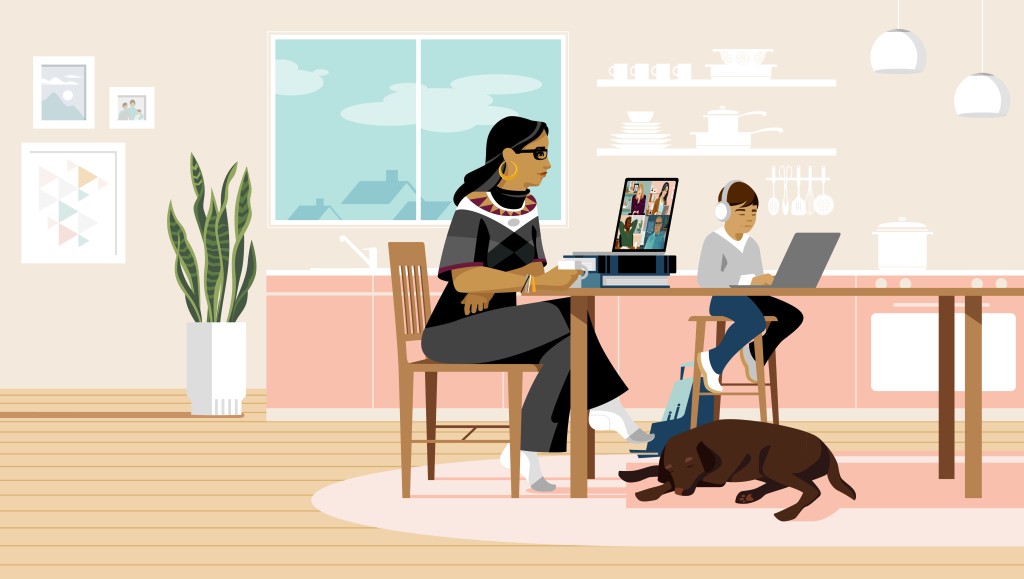Working Securely from Home
November 23, 2021

Article at a Glance
- Hybrid work is here to stay, and recent cybersecurity attacks target remote employees.
- Use Biola's VPN when working remotely.
- Protect your home WiFi and router with strong passphrases.
- Protect university data from being seen by anyone who isn't you, including family or guests in your home.
- Only use approved tools for work.
While working from home it’s even more important to follow information security best practices. We published similar guidelines in March 2020 at the start of the COVID-19 pandemic, and none of the principles have changed. That said, remote work has become increasingly common, and attackers specifically target remote employees.
This article covers a few simple principles to help you work securely in a remote or hybrid environment.
Secure Your Network
Biola’s on-campus network has several layers of safeguards and protection to ensure that Biola data is protected from attackers or unauthorized access. When working off campus in a remote environment you should use Biola’s VPN to receive the same level of security.
Use Biola’s VPN while off-campus to encrypt your network activity.
Make sure your home WiFi network is password-protected using a strong passphrase.
Confirm that the administrator password used for configuring your wireless router isn't still set to the default password. Replace it with a strong passphrase.
Keep Work Separate
Wherever you are working, you need to protect university data from being seen by anyone but you. This isn’t because we don’t trust your family or guests. Rather, Biola has to comply with certain legal and regulatory requirements that require only authorized Biola employees to have access to Biola data. While working from home:
Your family should not use your work computer.
Never share your NetID password with anyone, including your spouse or family members.
Other people, including your family, should not view sensitive university data on your computer screen (Examples: Protected student information, health information, or business data).
You should not do work on a shared family computer. If you must use a non-Biola machine for work, make sure that you follow our Guidelines for using a personally-owned computer for work.
Use Approved Tools Only
While working from home (or even in the office), you might be tempted to use different tools or services for work—such as iCloud, Dropbox, or personally-owned software. Instead, you should always use university-approved tools and services for working, especially when sharing or storing data.
These include (but are not limited to):
Zoom for video conferencing
Google Calendar to let your coworkers know your availability, and for quickly scheduling video conferences
Google Docs for documents, presentations, and spreadsheets
Microsoft Office 365 for advanced documents, presentations, and spreadsheets
Google Drive for data storage and sharing
Jabber to manage your work phone and check your voicemail
Slack or Google Chat for quickly messaging your coworkers
While using these services, make sure you always log in with your Biola account to protect your data. For example, Biola has special terms with Google and Zoom that require them to treat your Biola account as sensitive data, but the same may not be true for your personal account
Thank you for protecting Biola’s data while working from home!
Go here to see IT’s documentation for working from home: https://confluence.biola.edu/display/itservices/How+to+Work+Remotely+During+COVID-19
